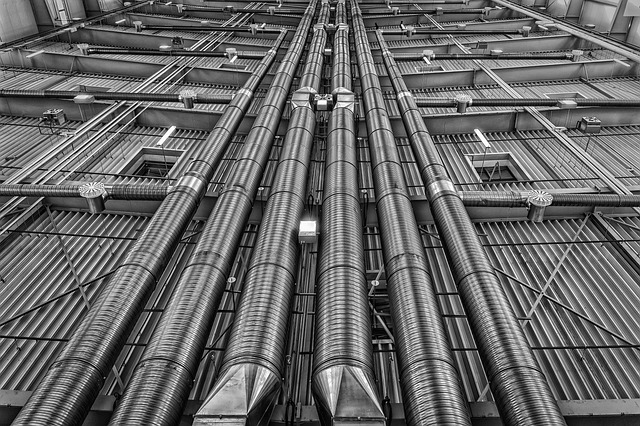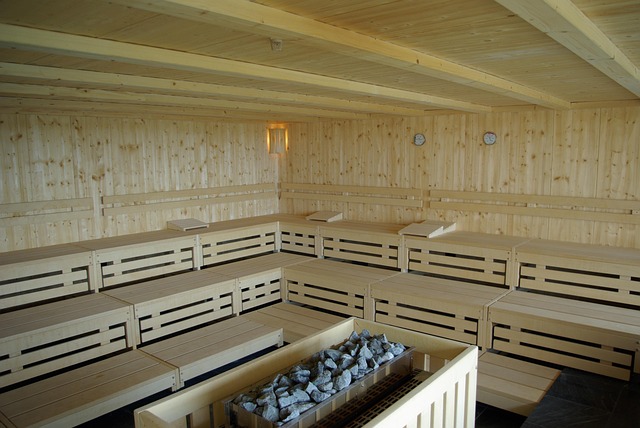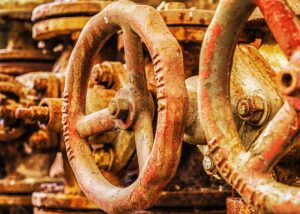Gas water heaters, especially tankless and condensing models, offer efficient hot water heating with quicker response times compared to electric alternatives. Tankless systems eliminate stored hot water, reducing energy usage. Condensing gas heaters capture residual heat, enhancing efficiency up to 95%. Installing high-efficiency gas heaters can significantly lower residential water heating costs and minimize environmental impact, despite higher initial installation costs. Proper sizing and professional installation are crucial for optimal performance and safety.
“Maximize your home’s energy efficiency with condensing gas water heaters—a game-changing technology for sustainable hot water heating. This comprehensive guide delves into the fundamentals of gas water heaters, exploring the potential of heat recovery efficiency. We’ll uncover how condensing technology recaptures latent heat, reducing energy waste. From understanding basic principles to installation benefits and considerations, this article equips you with knowledge to make an informed decision for your home’s comfort and environmental footprint.”
- Understanding Gas Water Heater Basics
- Heat Recovery Efficiency: The Concept
- Condensing Technology: How It Works
- Maximizing Heat Recovery at Home
- Benefits and Considerations for Installation
Understanding Gas Water Heater Basics

A gas water heater is a common fixture in many homes, providing hot water for various daily tasks. These heaters use either natural gas or propane to generate heat, which is then transferred to the water stored in a tank (tank water heaters) or passed through a heat exchanger for instant hot water (tankless gas systems). Understanding how these basic components work is crucial when aiming to maximize heat recovery efficiency.
Residential water heating accounts for a significant portion of a household’s energy consumption, making energy-efficient gas water heaters an attractive option. Propane and natural gas heaters offer the advantage of quick and efficient heating compared to electric water heaters. Tankless systems, in particular, eliminate the need for storing hot water, resulting in reduced energy usage and costs. By focusing on these gas water heater aspects, homeowners can make informed decisions to enhance their home’s hot water systems and contribute to overall energy efficiency.
Heat Recovery Efficiency: The Concept

Heat Recovery Efficiency, a key concept in modern home water heating, refers to the process of capturing and utilizing heat that would otherwise be wasted during the hot water cycle. In traditional gas water heaters, like natural gas heaters or propane water heaters, much of the energy used goes towards warming up the surrounding air and water tank, with only a fraction actually ending up in the water itself. This results in significant energy loss, especially when considering residential water heating costs over time.
Tankless gas systems, also known as on-demand hot water systems, offer a more energy-efficient alternative by eliminating the need for a storage tank. When a faucet is turned on, the gas fired heaters instantly heat the water needed, maximizing heat transfer and minimizing residual heat loss. This not only reduces energy consumption but also extends the lifespan of your gas water heater, making it a popular choice among homeowners looking to optimize their hot water systems and switch to more sustainable energy practices in home water heating.
Condensing Technology: How It Works

Condensing technology in gas water heaters is a game-changer when it comes to maximizing heat recovery efficiency. Unlike traditional models, these innovative systems capture and utilize the residual heat that would otherwise be lost up the vents during the heating process. This advanced mechanism works by condensing vaporized moisture from the burning fuel back into liquid form, which can then be re-used to heat water. In essence, it’s like a second-generation gas water heater that leverages the full potential of natural gas or propane.
The process begins when the burner ignites, creating a high-temperature flame that heats the water within the tank (for tank water heaters) or passes through pipes in the case of tankless systems. As hot gases rise, they pass through a heat exchanger, where their heat is transferred to the surrounding air. This cooled gas then condenses, releasing latent heat that can be used to preheat incoming cold water or supplement the main heating process, thereby reducing the overall energy consumption and enhancing residential water heating efficiency.
Maximizing Heat Recovery at Home

Maximizing heat recovery at home starts with understanding how a gas water heater operates. Unlike traditional tank water heaters, tankless gas systems, also known as on-demand or condensing models, produce hot water only when needed. This not only saves energy but also increases overall efficiency by minimizing heat loss during the storage process. Condensing gas water heaters are particularly efficient because they capture and reuse the heat that would otherwise escape up the exhaust vent.
By installing a high-efficiency gas water heater, such as a condensing model, homeowners can significantly reduce their residential water heating costs. Propane or natural gas heaters, depending on your preference, offer reliable and consistent hot water supply while promoting energy-efficient heating. This simple upgrade can lead to substantial savings on your utility bills and contribute to a greener home by reducing the environmental impact of traditional gas fired heaters.
Benefits and Considerations for Installation

Condensing gas water heaters offer a host of benefits for residential water heating. By recapturing heat that would otherwise be lost during the condensation process, these systems significantly boost energy efficiency—up to 95% in some models. This not only reduces utility bills but also minimizes environmental impact, making them an attractive option for eco-conscious homeowners.
When considering installation, several factors come into play. Initially, the cost may be higher than traditional tank or propane water heaters, but the long-term savings on energy bills can offset this investment. Space requirements and existing infrastructure are also crucial considerations. Tankless gas systems, for instance, eliminate the need for a storage tank but require a consistent gas supply and proper ventilation. Proper sizing and installation by professionals ensure optimal performance and safety, maximizing the benefits of these advanced hot water systems in various residential settings.
A condensing gas water heater represents a significant advancement in maximizing heat recovery efficiency, offering substantial energy savings and reduced environmental impact. By harnessing the power of condensation, these innovative heaters not only boost hot water supply but also contribute to a more sustainable future. Through proper installation and regular maintenance, homeowners can enjoy the benefits of this technology for years to come, ensuring a reliable and eco-friendly hot water solution.
